The strategic role of science and innovation
Right from the beginning of building and defending the country in the revolutionary era, President Ho Chi Minh emphasized: "Science must come from production and must return to serve production and serve the masses".
It is not only a technical orientation, but also an affirmation of the role of knowledge and technology in developing the country and improving people's lives. His thoughts on using science to organize and manage society are the foundation for modern digital management thinking today. For President Ho Chi Minh, innovation is not a slogan, but a national spirit: Every Vietnamese person must have a creative spirit, constantly searching for new things.
That ideology has been inherited and consistently developed by our Party in the Congresses, notably Resolution No. 20-NQ/TW (2012) on developing science and technology to serve industrialization and modernization; Resolution No. 52-NQ/TW (2019) on proactively participating in the Fourth Industrial Revolution and most recently Resolution No. 57-NQ/TW (2024) - a strategic turning point when identifying science, technology, innovation and digital transformation as pillars of national development.
Resolution No. 57-NQ/TW of the Politburo , with 5 guiding viewpoints, 5 groups of goals and 7 groups of specific tasks and solutions, affirmed that the development of science and technology, innovation and digital transformation is a "profound and comprehensive revolution in all fields", and at the same time is a leading breakthrough in national development. The highlight of the Resolution is the shift from "scientific management" to "national innovation management" - a breakthrough thinking, emphasizing investment in knowledge, technology, and people rather than mere facilities. Accordingly, enterprises are established as the subject of innovation, the State plays a creative role, and education and training is the foundation.
 |
Leaders of the Ministry of Science and Technology visited the technology product exhibition booth. |
Along with that, the Resolution also expands the scope of application of advanced technologies such as AI, big data, blockchain... through the testing policy (sandbox), contributing to the formation of an independent and autonomous technology ecosystem. The goal is that by 2030, these three areas must contribute at least 1% to GDP growth, aiming for 5% after 2030 - creating the foundation for Vietnam to become a high-income country by 2045.
To further consolidate the foundation for the development of this ecosystem, Resolution 68-NQ/TW establishes the private sector as the central driving force, unleashing social potential in protecting the ideological foundation through science, technology and innovation. This is a turning point institutional push, demonstrating a strategic shift in development thinking, from a state-led to a creation model, creating conditions for social actors to participate in the knowledge ecosystem.
Resolution 68-NQ/TW not only expands the space for private enterprises in scientific and technological research and application, but also emphasizes their role in urgent tasks related to ideological security, digital sovereignty, technological sovereignty and cultural resistance. Accordingly, enterprises are not only policy beneficiaries but also become subjects accompanying the State in implementing key scientific programs, developing core technologies, intellectual property, and the national innovation system.
In particular, affirming equal access to national-level scientific tasks - which were previously reserved mainly for research institutes, universities and state-owned enterprises - has opened a new era where private enterprises can promote their strengths of flexibility, creativity and agility in research, product development and technology commercialization. This not only promotes the efficiency of public investment in science and technology, but also contributes to the formation of new knowledge centers from the private sector, enriching the Vietnamese innovation ecosystem.
Step by step concretization of the Party's guidelines
In the era when cyberspace has become a “new front”, hostile forces are constantly using modern technology to spread fake news, distort and undermine the leadership role of the Party. Sophisticated tricks under the guise of “freedom of speech” and “civil society” are directly affecting the political awareness of a segment of the population, especially the youth. In that context, science, technology and digital transformation are the most powerful ideological weapons if used properly. Proactively building and controlling digital information platforms, training a team of patriotic technology intellectuals, and building a modern science and technology media ecosystem are long-term strategic plans to maintain the “ideological defense line”.
Under the leadership of the Party Committee of the Ministry of Science and Technology, in recent times, the Ministry of Science and Technology has actively implemented key tasks to realize Resolution No. 57-NQ/TW and Resolution No. 68-NQ/TW of the Politburo. Not only a state management agency, the Ministry is transforming itself into a "strategic link" between institutions-market-enterprises-science-society.
 |
View of the National Conference on Breakthroughs in Science and Technology Development, Innovation and National Digital Transformation. |
Through the completion of the legal system such as the Draft Law on Science, Technology and Innovation, the Law on Technology Transfer, the Law on Digital Technology Industry, the Law on Product and Goods Quality, the Law on Atomic Energy, the Law on Standards, Measurement and Quality, the Law on Intellectual Property and preferential policies for the private sector, the Ministry of Science and Technology has been removing many barriers in financial mechanisms, norms and administrative procedures that have hindered the development of science for many years.
In the field of science and technology communication, the Ministry has built a national science and technology information connection network, promoted digital communication, enhanced the application of AI, open data, and digital platforms to spread scientific values, promptly refuted false information, and oriented social awareness about the Party's central role in developing the country based on knowledge. Programs such as Techfest, Vietnam Innovation Challenge, and projects to develop core technologies, science and technology enterprises, creative startups, etc. have contributed to arousing the spirit of innovation from the grassroots, spreading the innovation ecosystem to each locality, enterprise, research institute, and community.
The Ministry of Science and Technology is working to develop national big data platforms, connect research centers with the manufacturing sector, commercialize research results, and link science with the market - an effective ideological defense approach in a digital competitive environment.
In the journey to protect the Party's ideological foundation, the Ministry of Science and Technology, with its role as a core creator, is gradually concretizing the Party's guidelines through institutions, actions and a spirit of constant innovation.
Source: https://nhandan.vn/khoa-hoc-cong-nghe-doi-moi-sang-tao-va-chuyen-doi-so-hien-thuc-hoa-nen-tang-tu-tuong-cua-dang-post883471.html










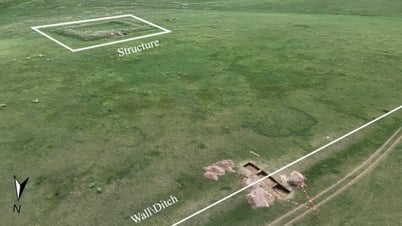







































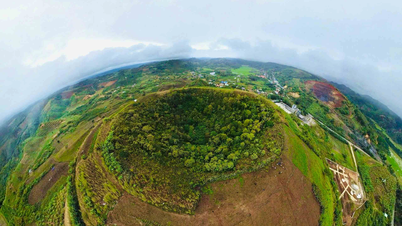





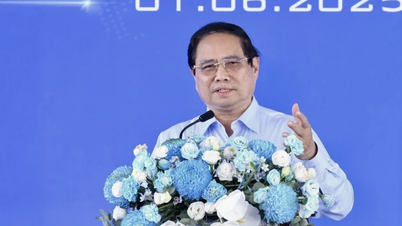

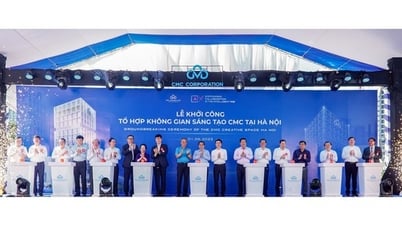

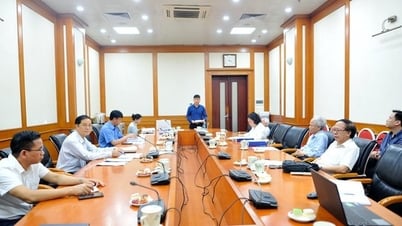










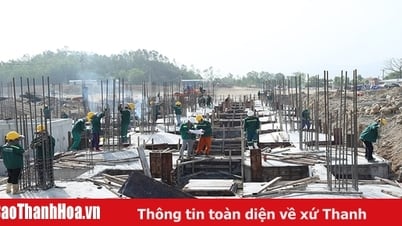













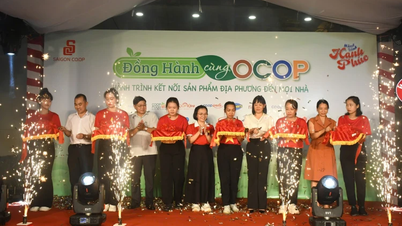







Comment (0)